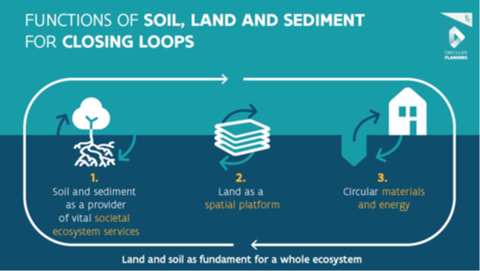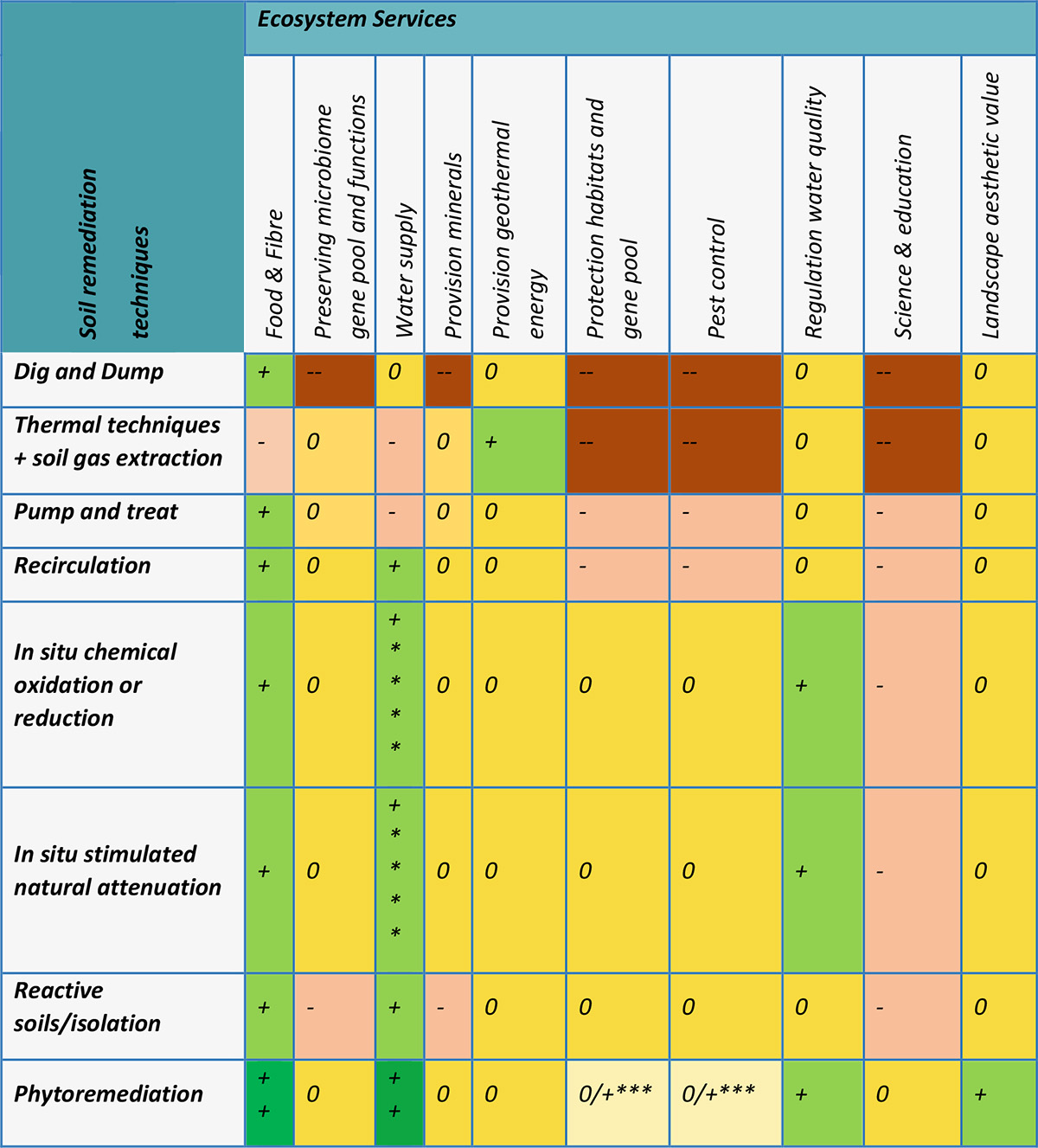Soils, land and circularity

The soil ecosystem services assessment is a framework for valuing soil functions, applying knowledge of soil quality to soil remediation and promoting circular soil and land use. The soil ecosystem services assessment is applied in multi-criteria analysis for soil remediation + land reclamation projects. The table below shows the ecosystem service scoring for soil remediation plans that can contribute to preserving important soil health functions and reducing damage to soil functions and services.

To optimise resource efficiency in soil remediation approaches and techniques, a CO2-Calculator sustainability assessment method was developed to evaluate individual remediation techniques in specific soil and land conditions.
The definition and identification of Soil Ecosystem Services are also explored at the regional level in the spatial decision tool, ‘Ruimtemodel’. Based on sets of criteria and available spatial data sources, soil functions and ecosystem services can be assessed and mapped for an area.
At regional planning level, several projects are examining coordinated soil protection + land reclamation in the contexts of circular cities-ports/regional circular metabolisms and sustainable multifunctional land use.
